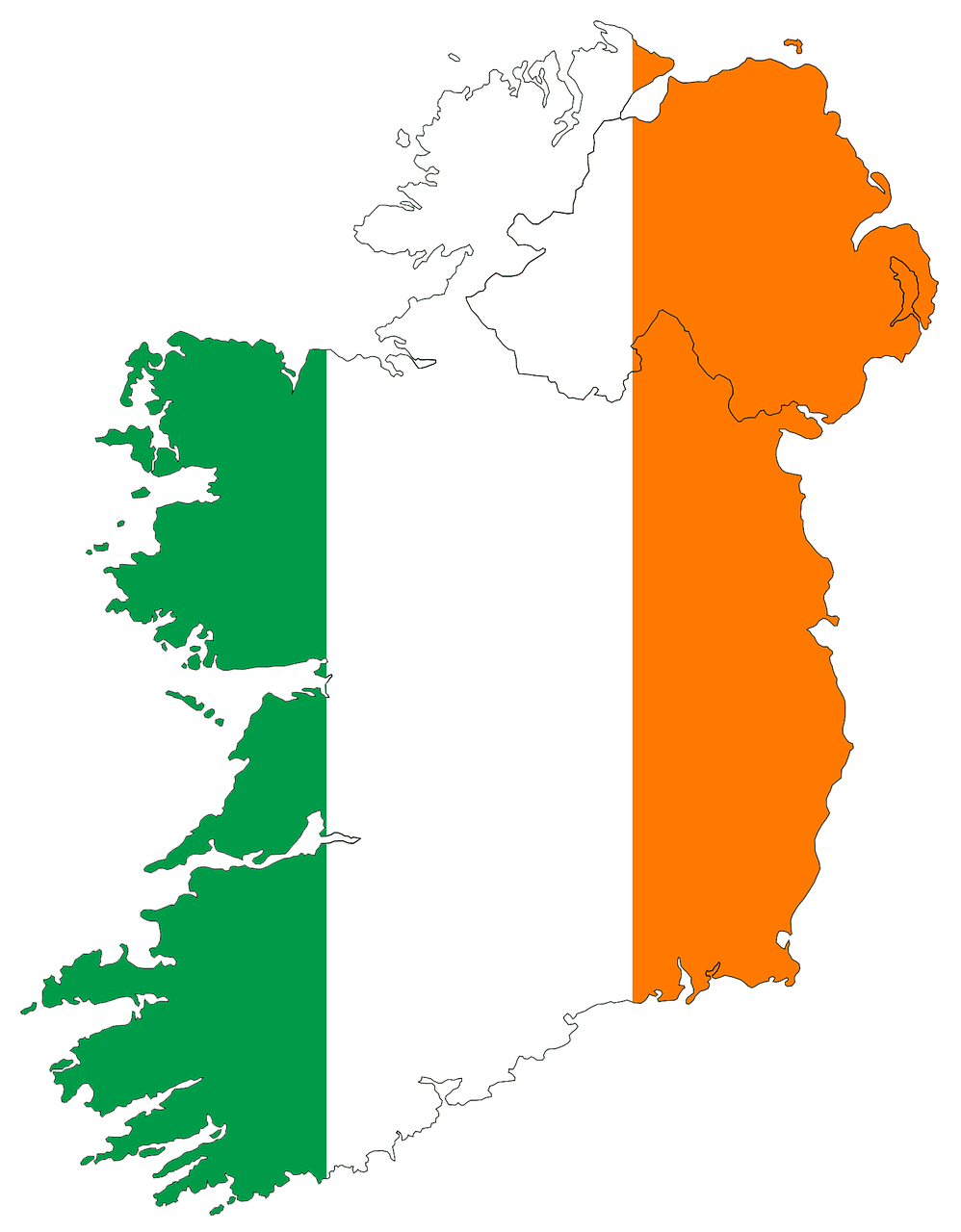Conflict of any kind can never be viewed as a positive move for ordinary citizens of the world. Avoiding confrontation paves the way for discussion. This allows for all voices to be heard, and a balanced view of any given debate. Those of us who are old enough will remember stories from our parents and grandparents of Ireland’s struggle for freedom and democracy, and the ultimate sacrifices made by leaders for the cause. The history of Ireland is a sad one, featuring not only our fight for Independence but a bloody civil war that divided families and communities across the country. Some would argue that the division still exists, in one form or another. But regardless of what side of the struggle our past heroes took, the ultimate aim was the same and that was freedom for our country. And freedom meant democracy. And democracy meant civil liberty and a voice for all citizens of our small island.
For over a hundred years, we’ve enjoyed a level of peace in the Republic for which many of our heroes of the past sacrificed their very lives. This is a fact that we must never forget. RTÉ’s recent excellent coverage of these events has allowed us to focus our minds on our past and appreciate just how much was sacrificed so we could enjoy the freedom we now take for granted. However, it appears that the very free-dom that was so hard won is now in question, and I wonder if those who fought so hard are now turning in their graves. I also won-der if our new enemy is not a foreign foe, but the very government we ourselves elected, and if we have, in fact, created a whip for our own backs, by allowing the new legislation on hate speech to be enact-ed.
Public Opinion
Let me be very clear. Hate speech against anyone or any group is loathsome. Incite-ment to hatred is also an attack on democracy. My late mother always said, “If you have nothing nice to say about someone, then say nothing”. I’m sure many responsible parents have often reiterated this state-ment to their child-ren. We were taught at school to condemn the deed but not the person. We do not have the right to judge others. Our Constitution recog-nises this. Under the Irish Constitution, you have a right to freedom of expres-sion. This is the right to freely express your con-victions and opin-ions. However, cur-rently we also have censorship laws, which restrict freedom of expres-sion in certain circumstances. Books, films, magazines, news-papers, online content and other forms of mass communication may be restricted or banned if they are considered unac-ceptable, offensive, obscene or likely to incite hatred or violence. That is as it should be. So why now is it deemed necessary by govern-ment to amend the existing laws and legislate for more restrictive measures? Did it all begin when Minister Charlie Flanagan signed the UN Migration pact? “The criticism of migration will become a criminal offence and media outlets that give room for criticism of migration can be shut down,” said Marcel de Graaff, MEP on December 2nd 2018. Last Oct-ober, Justice Min-ister Helen McEntee said that The Crim-inal Justice (Incite-ment to Violence or Hatred and Hate Offences) Bill 2022 was being crafted following “extensive public consultation and research.” This consultation on hate speech was conduct-ed in late 2019 and gave members of the general public an opportunity to submit their views on whether or not Ireland’s speech laws should be updated. Individuals were allowed to submit letters outlining their views, and also respond to a survey with a list of pre-prepared questions.
It was reported last week that a total of 73% of respondents to the government’s consultation did not support the govern-ment’s plan to ban hate speech. Many argued that the only valid restriction on free speech should be credible threats or incitements to viol-ence but stressed that simple offensive speech should not be criminalised. The Irish Times reported that “Department of Justice received thousands of letters and emails from academics, politicians and public as part of public consultation on reforms”.
And yet, it seems that public opinion did not matter a whit in this case, since the Bill ultimately passed overwhelmingly in the Dáil this week, with the support of all government parties, and even opposition parties such as Sinn Féin, the Social Democrats, and the Labour Party. In total, it was approved by an overwhelming 110 votes in favour, with only 14 TDs opposed (mostly Independents not suffocated by a party whip). The Taoiseach, Leo Varadkar defended disregarding the results of the public consultation on hate speech laws, arguing that “very often” such consultations are hijacked by “cam-paigning groups” and are not “reflective of public opinion”. So why have public con-sultation then? It appears to have been a done deal, regard-less of public opin-ion. The Bill is cur-rently before Seanad Éireann, 2nd Stage. It is interesting to note too that Under S7(3)(b) of the Hate Speech Bill hate speech does not apply to TDs and Senators for what they say in Parlia-ment under the defence of absolute privilege. Therefore, the laws will only apply to us mere citizens.
The new laws
The three main clauses are Sections 7, 8, and 10, which explain what crimes will be and how they will be dealt with.
Section 7 of the Bill says it will be a crime if somebody “com-municates material to the public or a section of the public or behaves in a public place in a manner that is likely to incite violence or hatred against a person or a group of persons, on account of their protected charac-teristics”. Characteristics are defined as “colour; nationality; religion; national or ethnic origin; descent; gender; sex char-acteristics; sexual orientation; and dis-ability”.
Importantly, this is the Bill’s definition of what ‘gender’ means: “The gender which a person expresses as the person’s preferred gender, or with which the person identifies, and includes trans-gender, and a gender other than those of male and female”. This suggests it will become a crime to voice views which can be seen as a criticism towards people who are biologically male, but who want access to women’s changing rooms, facilities and sports because they feel female. It does not explain what its definition of gender actually is or what transgender is, what a gender other than male or female might be or how any of the listed gender items differ from or relate to one another. For example, could a person have all three gender types simul-taneously? How would one know if one was being critical if the basic definition isn’t explained? Would enactment of this law pre-empt criticism of trans-genderist ideology, which concerns many people, especially with regard to what is being encouraged within our schools’ education system? In Australia in March, a woman was reported to police after making posts on social media about a male who identifies as trans-gender participating in the women’s foot-ball league. She was given an Appre-hended Violence Order, which acts as an interim order that will stand until a court hearing later this month. Is this what we can expect if these laws are enacted?
Section 8 deals with “condoning, denying or grossly trivialising genocide, war crimes, crimes against humanity and crimes against peace”. It says that to “behave in a public place” in such a way, or to “communicate material” of this kind, will be a crime if it can be proven there is “intent to incite violence or hatred”. Could this, in fact, be viewed as a “thought” crime, with the reference to “intent-ion?”
The maximum pen-alty under Section 8 is one year in jail.
Section 10 then goes further. Under this section, it will be a crime if someone merely “possesses material that is likely to incite violence or hatred against a person or a group of persons… with a view to the material being communicated to the public or a section of the public, whether by himself or herself or another person”.
The Bill says that where it is “reason-able to assume that the material was not intended for personal use”, it will be “pres-umed” that the accus-ed did indeed intend to disseminate it unless they can prove otherwise”. Further-more, it states that “a person shall be presumed, until the contrary is proved, to be in possession of the material in con-travention of sub-section 1”. In plain English, one will be deemed “guilty” until proven “innocent” – in direct opposition to current law.
Gardaí will be given powers of confis-cation of any material deemed suspect from people’s homes, offices, laptops phones or any devices, subject to a search warrant. So, we would need to be extra vigilant about material downloaded or viewed, even if it’s for research pur-poses.
‘Hateful’ is subjective
The point is that any right-thinking person would realise that ‘hateful’ is a sub-jective value, subject to the whims of the powers of the day and would surely oppose instituting a law that could be misused. Who dec-ides what is hateful and what is not? The Government’s new hate speech legis-lation also states that people who refuse to give their computer and phone passwords to the Gardaí can be fined thousands of euros and/or imprisoned for up to 12 months. Understandable in the case of recognised criminal gangs, rapists, paedophiles, or murder suspects, but will this apply to anyone expressing an opposing opinion?
Should Catholics be concerned by this Bill? Dubhaltach Ó Reachtin, writing in the Catholic Herald (2/11/2022) seems to think they should: “The Catholic Church has long-standing objective positions on issues, which, if they are to be uttered in public (and that may include the pulpit), may cause the priest or other adherent to be made subject to prosecution. Although there is a subjective space for ‘reasonable and gen-uine contribution’ [in the Bill] in relation to literary, artistic, pol-itical, scientific, religious, or academic discourse, this is based on what is ‘considered by a reasonable person as being reasonably necessary. What is likely to be con-sidered reasonable, or what is a reason-able person, is contested in an increasingly polarised world.”
Further silencing of church leaders, when the church has never been more reluctant to speak out on issues that concern church- goers recently, could sound the death knell for religious orders nationally. Is this one of the aims of the new laws?
For those who follow social media, Twit-ter’s Elon Musk and Canadian psychol-ogist Jordan Peterson, and many other celebrities have publicly slammed these new laws, indicating that they are a massive attack on free speech. The American Spectator, a conservative American magazine covering news and politics, said “Should the Bill become law, which seems likely, the government will possess unprece-dented power to quash or silence peaceful protests and demonstrations, prosecute the makers and sharers of memes, and effect-ively ban opinions it doesn’t like.” The UK’s Telegraph headlined on Satur-day “Leo Varadkar’s treatment of the Irish public is utterly shameless.”
Ireland’s senator Ronan Mullen said on the Tonight Show last week, “For all those who believe a Hate Speech Bill is necessary, please do not equate words with violence. We need to be able to speak, otherwise we foment what we seek to avoid. Persuasion is a tool of peace. Exchanging ideas on mainstream media is necessary.” It sounds like plain, old fashioned common sense to me.
It’s interesting too to note that Article 15 of our Constitution states” 1. The Oireac-tas shall not enact any law which is in any respect repugnant to this Constitution or any respect thereof” and 2 “Any law enacted by the Oireachtas which is in any respect repugnant to this Constitution or any provision thereof, shall, but to the extent only of such repugnancy, be invalid.” So, effect-ively, could this be legally challenged as a change to our Constitution, and as such, would it require a referendum?
Censoring opinion?
So, what are my concerns? Am I being over-dramatic, am I overthinking the law, or have I legit-imate reasons for thinking there’s a strong possibility that I will no longer be able to express a genuine opinion, by writing or speaking, if it is deemed con-trary to government narrative or appears to be inciteful, even if it’s only purpose is to inform readers or listeners of matters of government? As I’ve previously stated, we have enjoyed over one hundred years of freedom and demo-cracy. Is this law an effort to undermine our basic civil libert-ies and freedom of speech? Can we no longer voice an opposing opinion or attend a protest march? For the record, I have never in my life attended a protest march. But for me, these amend-ments are full of ambiguity, are open to interpretation, and the very fact that public opinion has been largely ignored indicates a real hard effort on the part of the government to enact these changes. The European Com-mission website states “On 9 Decemb-er 2021 the European Commission adopted a Communication which prompts a Council decision to extend the current list of ‘EU crimes’ in Article 83(1) TFEU to hate crimes and hate speech. If this Council decision is adopted, the Euro-pean Commission would be able, in a second step, to pro-pose secondary legislation allowing the EU to criminalise other forms of hate speech and hate crime, in addition to racist or xenophobic motives.” What other forms of hate crimes? Who interprets or decides what they are? Other countries are pushing to adopt these new laws. It looks like Ireland has once again stepped up to be the ‘goody goody’ of Europe by being one of the leaders in promoting the EU’s intention, but at the expense of our citizens’ freedom. I would encourage all of us to look again at this, if not for our-selves, then for the sake of our children and grandchildren who could be once again living in a country that no long-er values freedom. Surely, we’ve had enough of our liberties being taken from us. I have also signed a petition to government to stop the rush of this legislation, asking that we at least give it more consideration and public debate. Let people be informed of all the implications of this new Bill.





